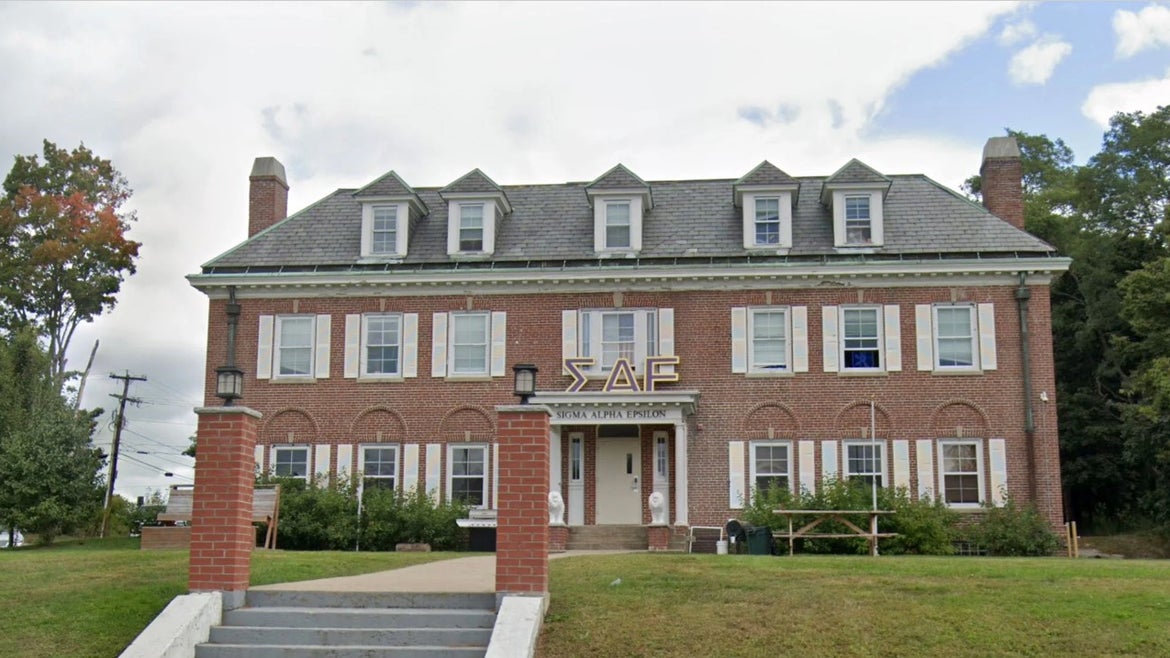The students were members of Sigma Alpha Epsilon fraternity, authorities said.
Arrest warrants have been issued for 46 members of a University of New Hampshire fraternity over an alleged hazing incident, police said.
The Sigma Alpha Epsilon fraternity house at the Durham campus was the site an alleged hazing for new members in April, authorities said.
The university's chapter has been suspended after the Sigma Alpha Epsilon national organization reported the alleged hazing to school officials, the university said.
Nearly 30 students have been arrested and released thus far on misdemeanor hazing charges and ordered to return to court for a July 13 arraignment hearing, police said.
The misdemeanor citations are punishable by a fine of up to $1,200, police said.
"So while there are warrants for 46 individuals, they have been turning themselves in sort of on a one-by-one basis after the police are able to make contact with them," Strafford County Deputy Attorney Emily Garod said in a statement.
Durham police said they began investigating on April 18, after being notified of a possible hazing event by university officials.
"We have cooperated with police throughout the investigation and the fraternity was interim suspended pending the outcome of the police investigation," the college said in a statement.
No details of the alleged hazing have been released by authorities.
A warrant also charged the chapter with hazing, police said. That charge is punishable by a fine of up to $20,000,authorities said.
"Sigma Alpha Epsilon denounces all acts of hazing and misconduct that do not represent the fraternity's values defined by our creed, The True Gentleman," said a statement from the fraternity's national organization.
An estimated 44 states have passed anti-hazing laws since the 1990s, following a series of high-profile college scandals in which students died or were seriously injured during hazing events in which pledges were forced to consume poisonous levels of alcohol and to perform life-threatening physical feats.






